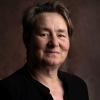Human rights foundation for social work with refugees
At an international conference in Berlin on the issue of refugees, 250 participants, including several colleagues from Movisie, signed a declaration to the UN calling on respect for the human rights of refugees. The declaration and presentations by several prominent international experts focused on human rights and why they should be elementary to social work.
‘People fleeing […] deserve a warm welcome, as new neighbours, in the cities and districts where they arrive’. This is what the adopted UN declaration ‘Settlement Houses of Hope’ says. The emphasis is on the role community centres and neighbourhood centres have in welcoming newcomers: ‘When neighbourhood settlement houses are strong cornerstones of communities, then they will act in moments in and out of crisis to build foundations in the lives of new neighbours who arrive at the doorsteps of our communities.’ The role of community builders for creating mutual understanding, and a sense of solidarity and hope is called crucial.
Movisie member of the international IFS network
The conference ‘On the Move – At Home in the World’ was hosted by the International Federation of Settlements and Neighborhood Centers (IFS), a network of national, regional and local organisations aiming to strengthen communities. Petra van Leeuwen is an IFS board member on behalf of Movisie. She also participated in the conference: ‘A wide variety of research results and good practices are being shared during international conferences. It is a good addition to our knowledge function to help disseminate such new insights and practices in the Netherlands, by means of the website, or live social media reports. In this way our colleagues can also profit from the knowledge we come across at meetings abroad.’ IFS also has a consultative status at the United Nations and is able to participate in UN sessions. The UN had requested IFS input on the issue of refugees, leading to this UN declaration.
Role of social workers
The central position of citizens in directing their own lives has changed the role of social workers. In a recent article (in Dutch) Lou Repetur from Movisie pleads in favour of a modern moral compass for social work. Basic values such as justice and equal rights for everyone – the human rights expressed in the Universal Declaration of Human Rights – should always hold key position. In 2016 dozens of professors and lecturers from Flanders and the Netherlands signed a petition declaring that human rights should be an explicit part of the social work curricula and practice in universities. They feel that the realization of values such as freedom, democracy, the constitutional state and human dignity are under pressure in many European countries and this impacts primarily those people living in vulnerable situations, e.g. refugees. The manifesto calls working towards a just society and fighting for the rights and interests of vulnerable group the essential duties of social work.
'Sheltering refugees is not a heroic act, but a human right'
In her presentation at the conference On the Move German professor Nivedita Prasad emphasized the importance of internationally agreed human rights as the basis for social work. She presents concrete dilemmas that social workers are facing. Prasad calls on social workers to concentrate on the meaning of human rights and its consequences for refugees close to home. She emphasizes: ‘Sheltering refugees is not a heroic act, but a human right. It is simply an obligation.’ The German scientist states that social workers should structurally expose the violation of human rights, they have a mandate to initiate change. She developed a position paper Social Work with Refugees in Refugee Accommodations Centers that may be helpful for establishing a shared vision on human rights in social work with refugees.
Acknowledgement
The UN declaration adopted during the conference also states that settlement houses and community centres are able to foster strong and reciprocal relationships. Sean Lauer (University of British Columbia) studied community and settlement houses in Canada. In his lecture he concludes that when newcomers take up volunteering in community centres, this not only leads to their own personal development, but also leads to acknowledgement of their valuable contribution to society.
Meeting each other
Another presentation worth watching is the keynote speech by professor Barbara John from Germany. She is regarded as one of the leading experts in the field of migration. In her lecture she emphasizes the importance of giving a voice to migrants when designing policies: ‘The only way to make good legislation is by talking to people who know how it works.’ She also states that work is essential for refugees to feel at home in their country of arrival. Movisie colleague Shahrzad Nourozi, who was also at the conference: ‘In her lecture John reveals that people who arrive in Germany get asked all kinds of questions, but nothing about their work experience and what they would like to do in Germany. But those are crucial questions to ensure rapid integration, also in the Netherlands. And not in the least place with the aim to give refugees a warm welcome.’
In her speech John also outlines a number of good practice examples aimed at meeting each other. ‘We should not underestimate the positive effects in the long run both for newcomers and for the citizens of the host society. Meeting each other is the foundation of integration’, says John.




